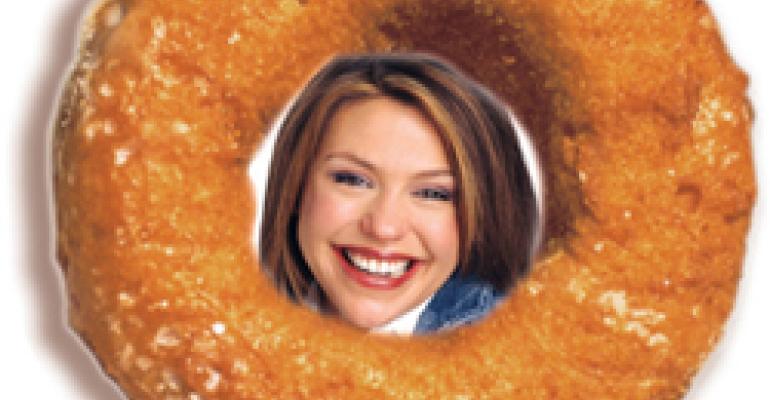I refuse to go out on a limb and declare that Rachael Ray will have scant effect as the new ad spokeswoman for Dunkin’ Donuts, but I do hereby announce that I will be honestly surprised if she helps the chain sell more coffee and doughnuts.
The same goes for selling the new “better for you” menu items that Ray supposedly will develop with the Dunkin’ Donuts culinary team.
I have seen her in action for maybe five minutes on her talk show, and I’ve never seen her Food Network shows. Can’t say I’ve ever read one of the recipes for her famous “30-Minute Meals,” either.
By all accounts, she is bright and personable and “adored by millions,” as Dunkin’ Donuts said in the news release about her hiring. She has written more than a dozen cookbooks, is editor in chief of her own food and lifestyle magazine, and has a line of knives, cookware and bedding.
She seems well-qualified to be an ad spokeswoman, but credentials don’t necessarily stimulate sales.
Rick Bayless was not an effective pitchman for Burger King’s low-fat chicken baguette sandwiches. Tyler Florence couldn’t pull Applebee’s International Inc. out of a sales slump last year when he appeared in advertising for the chain.
There are exceptions, however. Wingstop Restaurants Inc., a nearly 500-unit chain based in Garland, Texas, credits ad spokesman Troy Aikman as a key in generating higher sales year after year.
Football star Aikman is a loyal Wingstop customer, and consumers strongly identify him with the brand. That’s what makes his endorsement role different from other celebrities who pitch products.
Their resumes, like Ray’s, simply ooze with culinary success, yet they couldn’t succeed as ad spokesmen, and Ray faces the same problem they did in connecting with customers.
Consumers did not identify Bayless as a Burger King customer, and they never had visions of Florence hanging out at Applebee’s two or three nights a week and pigging out on mozzarella sticks.
For the most part, consumers don’t see a celebrity in a TV spot and get the impression that the celeb really eats whatever sandwich, burger or pizza he or she is shilling. Consumers think the celebrity is just out to make a little extra walking-around money.
Since I’ve admitted that I haven’t paid much attention to Ray’s programs, a reasonable person will wonder where I get off questioning her potential as an ad spokeswoman.
Fair enough. But I don’t have to see her in her element to wonder whether she can be successful in a different one, namely television advertising. Her ability to get people to buy her cookbooks doesn’t mean she can get them to buy Dunkin’ Donuts coffee or “better for you” snacks.
The stakes are different. She has credibility selling her own cookbooks, knives and cookware. For all I know her line of bedding is selling like hotcakes, to use a culinary expression.
Selling someone else’s product is much harder, however, because the ad spokesperson is not a recognizable part of the brand. It’s her face on her cookbook, but it’s the Dunkin’ Donuts logo on the products she’ll be advertising for the chain.
That’s not all. When she starts to pitch “better for you” menu items, she’ll be promoting something Dunkin’ Donuts isn’t known for, despite its efforts to remove the trans fats from its products. The chain now is known mostly for its coffee, but it wants to establish a reputation for other products.
Perhaps it will by the end of 2010, when Ray’s deal with Dunkin’ Donuts expires. At least she’ll have more than 30 minutes to cook up some strong sales for the chain.




